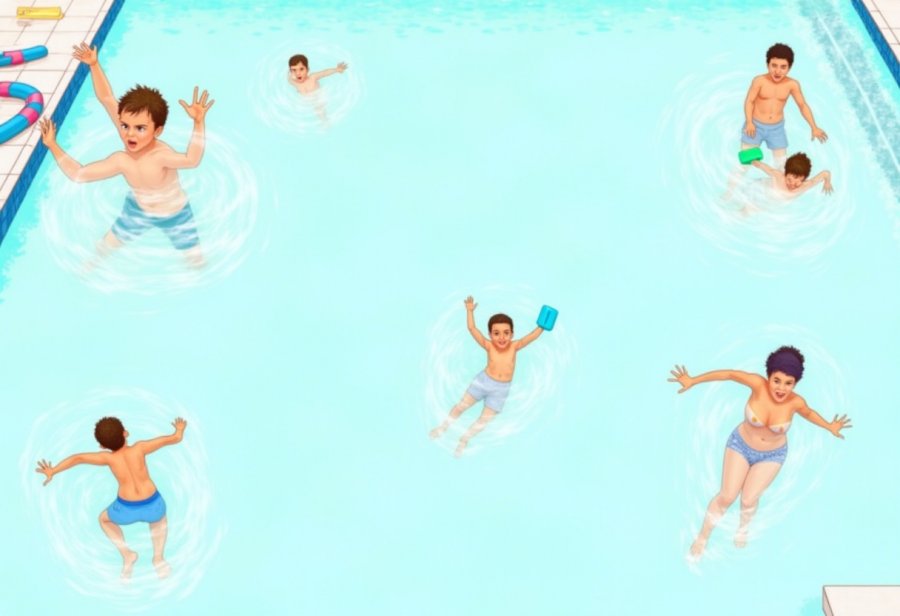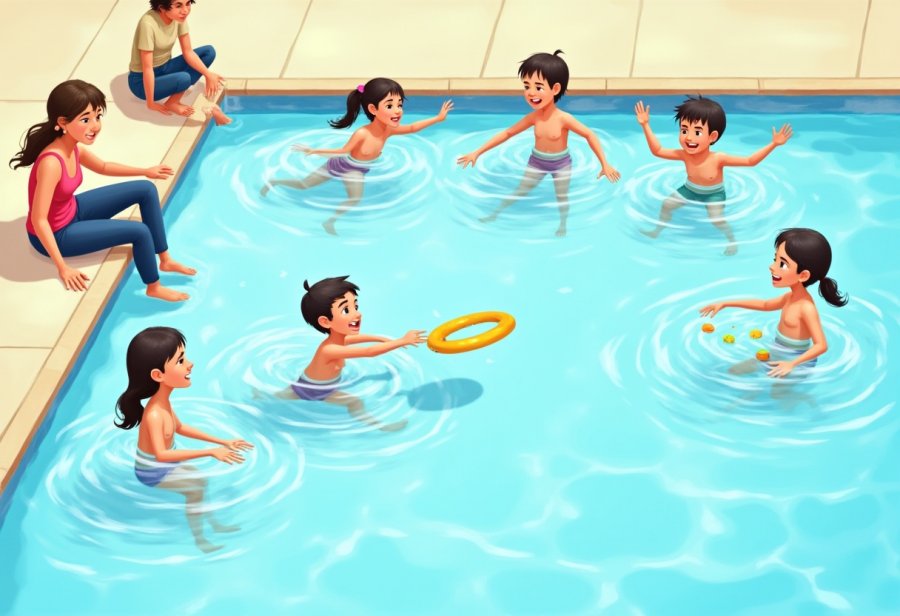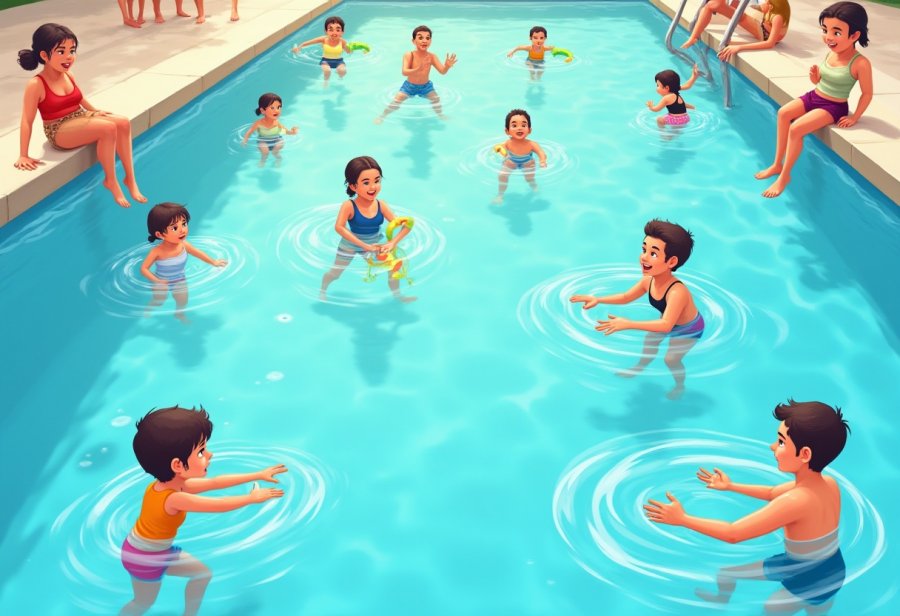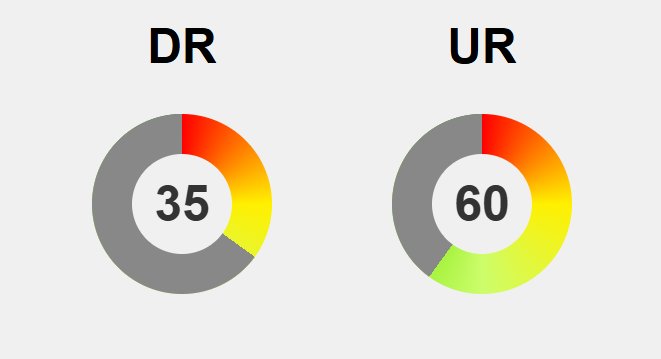Imagine transforming your deepest water fears into a newfound sense of freedom—at any age. Is it truly too late to learn how to swim, or is the real barrier simply taking that brave first step? This inspiring journey reveals that mastering water confidence isn’t reserved for children or the athletic; it’s accessible to everyone willing to start small, embrace patience, and challenge misconceptions. As adults overcome myths about age and ability, they discover that water can become a space of growth, safety, and joy. From battling self-doubt to celebrating tiny victories like floating or breathing exercises, each step reinforces resilience and self-trust. The process not only enhances safety—helping in emergencies or family outings—but also enriches mental well-being, reducing anxiety and encouraging an active lifestyle. So, what if the secret to conquering fears lies in simply showing up and persisting? The journey from fear to freedom begins with that courageous move.

Transform Your Life at Any Age: Embrace the Water with Confidence
Learning to swim isn’t just a childhood milestone or a skill reserved for the athletic—it’s a possibility that anyone can embrace, no matter their age. For many adults, the idea of stepping into a pool or ocean can stir nerves or doubts, especially if water fears have been part of their life story for years. But the truth is, it’s never too late to start. The journey from feeling water-shy to swimming with confidence can be surprisingly rewarding, opening up new experiences, boosting safety, and fostering a sense of personal achievement.
What makes learning to swim so transformative isn’t just mastering strokes or floating; it’s the confidence that grows along the way. When you learn to navigate water safely, it changes how you see and approach everyday situations. Whether crossing a shallow stream, helping a loved one in trouble, or just enjoying a day at the beach, water becomes less intimidating and more a space of opportunity. This newfound comfort can also improve mental well-being, reduce anxiety, and encourage a more active lifestyle.
Many people carry fears about water that hold them back from taking that first step. These worries often come from childhood slips, feelings of being trapped, or past trauma. Recognizing these fears is the first move toward overcoming them. Support from patient instructors or understanding friends can make all the difference, helping you build familiarity gradually. Supportive environments that focus on safety and encouragement nurture confidence and make the learning process feel less daunting.
The process of learning to swim at any age is about progress, not perfection. Every small step—dipping toes in, floating with support, or taking a few strokes—builds trust in your abilities. Celebrating these tiny victories creates momentum and helps turn fears into familiarity. Often, the hardest part is simply showing up for that first lesson. Once you do, many find that water isn’t as scary as they thought, and their confidence begins to grow naturally.
This journey is about more than just swimming. It’s about reclaiming your sense of capability and resilience. Facing fears in the water fosters patience and persistence, qualities that extend beyond the pool into everyday life. With each new skill learned, you reinforce your ability to face challenges, proving that it’s never too late to start and that growth is always possible.
Ultimately, learning to swim at any age is a personal transformation. It’s about breaking down mental barriers, embracing new skills, and discovering a space where fears turn into freedom. The water becomes a place of growth and joy, not anxiety. Every step forward, no matter how small, adds to a lifetime of confidence and opens the door to a more active, safe, and fulfilling relationship with water.
Conquer Water Fears with Mindset Shifts and Gentle Techniques
Overcoming water fears at any age starts with changing how you view the water. Instead of seeing it as a danger, try to see it as a place for learning and growth. Shifting your mindset lays the foundation for progress, helping you approach each step with patience and self-compassion. Celebrate small victories along the way—whether it’s getting comfortable in shallow water or practicing breathing exercises—as these moments build confidence and momentum.
Gradual exposure is one of your most effective tools. Begin in shallow water where you can stand easily, and use support from a patient instructor or a trusted friend. Flotation devices can provide reassurance as you work on basic skills like floating or holding your breath. The goal isn’t perfection overnight but rather familiarity and trust in your abilities, which develop steadily with each attempt.
Focus on fundamental skills like floating, breath control, and gentle kicking. These basics serve as the building blocks for more advanced strokes and help ease feelings of helplessness. Repeating these exercises regularly trains your body and mind, reducing fear responses over time. As you notice yourself floating effortlessly or relaxing in the water, you reinforce the belief that you’re capable—and that confidence grows with each small success.
Having supportive instruction makes a significant difference. An understanding teacher who emphasizes safety and positive reinforcement can help you push past hesitation. They guide you through each step, celebrating progress and helping you set realistic goals. In a nurturing environment, you’re more willing to try new skills and step outside your comfort zone, which accelerates your confidence-building process.
Mental strategies also play a crucial role. Techniques like deep breathing, visualization, and relaxation exercises calm your mind before and during water activities. Breaking the learning journey into manageable steps prevents overwhelm and keeps motivation high. Expect setbacks—they’re a normal part of learning—but approach them with persistence and kindness toward yourself. Each challenge you overcome adds to your resilience and belief in your ability to conquer water fears.
With steady effort and patience, overcoming water fears becomes not just possible but rewarding. Recognizing that progress isn’t always linear encourages you to celebrate each small victory. Soon, water shifts from a source of anxiety to a space of growth and joy, making your water confidence journey a lifelong transformation.

Debunking Myths and Overcoming Obstacles to Learning How to Swim
Many adults hesitate to start learning to swim because of common misconceptions about what it takes and who can do it. One widespread myth is that swimming is only for children or highly athletic people. This belief can make grown-ups think they’re too old or not fit enough to begin, but that simply isn’t true. Learning to swim at any age is possible, and everyone’s body and skill level are different. It’s about patience, consistent effort, and persistence—not about being the fastest or the strongest.
Another misconception is that it’s too late to learn. Many assume that because they didn’t learn as kids, they never will. But the brain remains adaptable throughout life, and countless adults have successfully picked up swimming later in life. Fears about water are often rooted in misunderstandings or past negative experiences, not in an inability to learn. With steady, gentle exposure, those fears can diminish, and confidence can grow.
Some believe mastering swimming is an insurmountable challenge. They might struggle with basic skills like floating or breathing and think they’ll never get it right. But these skills are fundamental building blocks that improve over time with practice. Having a patient instructor or supportive friend can make a big difference, helping break down complex techniques into manageable steps. Progress may be slow at first, but each small success builds momentum.
Many people feel that their fear of water makes learning impossible. This reaction is normal and doesn’t define their capacity to learn. Anxiety around water can be managed through gradual exposure and relaxation techniques. Supportive, safety-focused environments that emphasize encouragement help people push past hesitation without feeling judged. Recognizing that fear is a natural response makes it easier to face and overcome.
Societal attitudes also influence how adults view their ability to learn. Outdated beliefs that only children or athletes can master swimming create unnecessary stigma. Today, more adults recognize that water confidence is a valuable skill at any age. Sharing success stories and celebrating small victories challenge these stereotypes, making it easier for others to take that first step.
Setbacks are a normal part of learning, yet many believe that falling back into fear or frustration means failure. In reality, progress isn’t always linear. Challenges and doubts are part of the journey, and persistence is key. Each hurdle you overcome adds to your resilience and confidence, proving that water fears can be addressed with patience and support.
Understanding these obstacles and misconceptions is crucial to breaking through barriers. They often stem from fear, misinformation, or societal stereotypes rather than actual limitations. By dispelling these myths and approaching water learning with patience, support, and a positive mindset, adults can unlock their potential. Overcoming these mental hurdles transforms water from a source of anxiety into a space for growth and achievement.
For many adults, finding the right resources can make all the difference in their learning journey. Exploring comprehensive guides or courses can provide the guidance and confidence needed to progress, such as this helpful resource on learning to swim at any age learning to swim at any age.
From Water Confidence to Daily Empowerment: Practical Benefits of Swimming
Learning to swim can significantly enhance your daily life in practical ways. When you’re comfortable in water, you’re better prepared to handle unexpected situations, like assisting a loved one in trouble or avoiding accidents at the pool or beach. This sense of safety and confidence removes a lot of stress from water-related outings, allowing you to relax and enjoy these moments fully.
Beyond safety, water confidence opens doors to a more active lifestyle. Swimming is a low-impact exercise that’s gentle on joints but still highly effective for cardiovascular health and muscle strength. Once you feel at ease in the water, participating in activities like lap swimming, water aerobics, or family trips to the beach becomes effortless and enjoyable. Incorporating regular water activity boosts your physical health and contributes to overall well-being.
Gaining water confidence also builds resilience and self-trust. Conquering fears in a controlled environment demonstrates that challenges can be overcome with patience and persistence. This mindset of perseverance can spill over into other areas of life, helping you approach daily hurdles with a calmer, more confident attitude. Learning to swim becomes more than a skill—it becomes a catalyst for personal growth.
Social opportunities often accompany the journey to water confidence. Joining beginner classes, community swim groups, or simply enjoying water outings with family and friends creates shared experiences that reinforce progress. These social connections motivate continued effort, making the process feel less like a solo challenge and more like a supportive adventure.
Many community programs now focus on making water confidence accessible for adults. These welcoming environments provide expert guidance and a focus on safety and encouragement. Such settings foster steady progress and celebrate small victories, reinforcing your motivation and commitment. Realizing that it’s never too late to learn helps break down psychological barriers and keeps you moving forward.
Overcoming water fears also benefits mental health. Adults often report feeling less anxious and more accomplished after learning to swim. Facing fears and pushing beyond comfort zones can inspire resilience and a sense of empowerment that extends well beyond the pool. Every small success adds up, transforming water from a source of worry into a space for joy and self-discovery.
The skills you develop in the water influence many aspects of your life. Improved confidence can lead to a greater willingness to try new activities, travel, or engage in outdoor adventures. This newfound freedom promotes a more active, fulfilling lifestyle that enriches your daily routine and broadens your experiences.
In the end, learning to swim isn’t just about mastering strokes; it’s about reclaiming your sense of safety, confidence, and independence. Each step you take toward water mastery shapes a healthier, more resilient version of yourself. The journey from fear to freedom is a powerful reminder that it’s never too late to embrace growth, face challenges, and unlock new opportunities for personal development.

Taking the First Step: Reflecting on Your Journey from Fear to Freedom
Taking that first step into the water often feels like the biggest hurdle, but it’s also the beginning of a remarkable transformation. Once you muster the courage to dip your toes in or take a breath in shallow water, you start to see that your fears are more manageable than they seemed. That initial act of bravery sets the stage for progress, proving that water fears can be faced and overcome at any age.
Many adults find that the toughest barrier isn’t learning to swim itself but overcoming the mental blocks that keep them from trying. Fear, doubt, and feelings of inadequacy can seem overwhelming, yet they are only temporary obstacles. Giving yourself permission to start, no matter how small the first step, shows that growth is possible regardless of your past experiences or age. Each small victory builds momentum, gradually turning water from a source of anxiety into a space of confidence and joy.
As you reflect on your journey, you realize that the real achievement isn’t just being able to swim but the resilience you’ve developed along the way. Facing fears, pushing outside your comfort zone, and persevering through setbacks all foster a mindset of persistence that extends beyond the pool. These lessons in patience and determination remind you that setbacks are part of progress, not failure, and that every challenge you overcome adds to your strength.
Growth in water confidence doesn’t happen overnight. It’s a process of steady, small steps—each floating session, each new stroke, each moment of relaxation in the water—that reinforce your belief in your ability to succeed. Celebrating these small wins keeps motivation alive, making the journey feel rewarding rather than overwhelming. The more you persist, the clearer it becomes that fears are only temporary, and your potential is much greater than you imagined.
What’s most inspiring is recognizing that it’s never too late to start. Age, background, or previous fears don’t define your capacity to learn and grow. When you embrace that first act of courage, you rewrite your story. Trusting in your ability to learn and adapt opens doors to experiences and personal growth that extend far beyond the pool. It’s a reminder that the journey from fear to freedom is accessible to everyone willing to take that initial leap.
Every effort, no matter how small, adds up to a lifetime of benefits. Water transforms from a symbol of dread into a place of connection, adventure, and self-discovery. The confidence you gain in the pool spills over into your daily life, empowering you to face challenges with calm and resilience. This journey isn’t just about swimming — it’s about reclaiming your inner strength and opening yourself up to new possibilities.
Keep going, even when progress feels slow or uncertain. Each step forward—no matter how tiny—builds momentum and reinforces the idea that fears are temporary and growth is ongoing. The willingness to start and persist is what turns water from an obstacle into a source of empowerment. The more you embrace this process, the more you’ll see that freedom from water fears is within reach, no matter your age or background.





